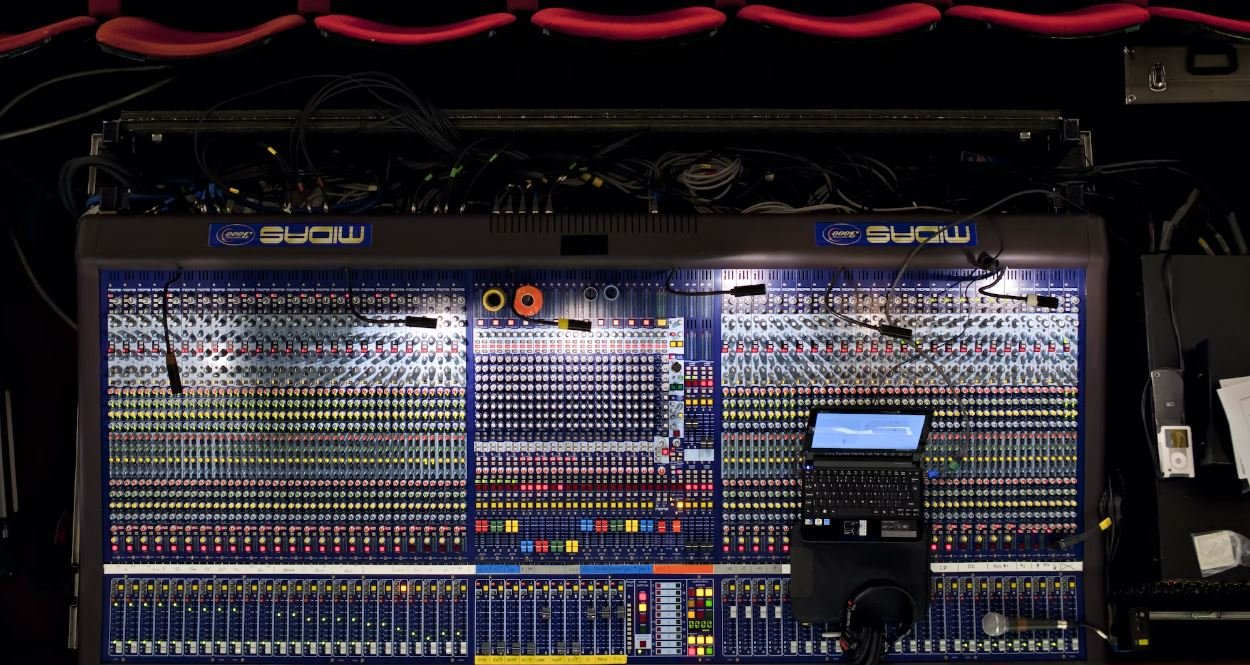Google AI vs. Amazon AI
Artificial Intelligence (AI) has revolutionized the way businesses operate by automating tasks, improving efficiency, and delivering personalized experiences. Two major players in the AI market, Google and Amazon, offer powerful AI solutions that businesses can leverage. In this article, we will compare Google AI and Amazon AI, exploring their features, benefits, and use cases.
Key Takeaways:
- Google AI and Amazon AI provide advanced AI capabilities for businesses looking to incorporate artificial intelligence into their operations.
- Google AI focuses on various AI services, including machine learning, natural language processing, and computer vision.
- Amazon AI offers a wide range of AI services, including speech recognition, text-to-speech conversion, and image recognition.
- Both Google AI and Amazon AI are cloud-based platforms that provide scalability, reliability, and security for AI applications.
- Consider your specific business needs and use cases to choose the most suitable AI platform for your organization.
Google AI
Google AI encompasses a suite of products and services designed to enable businesses to harness the power of artificial intelligence. One of the key offerings of Google AI is Google Cloud AI, a set of pre-trained models and tools for developers. It provides a variety of AI services such as machine learning, natural language processing, and computer vision through easy-to-use APIs.
*Google’s AutoML enables users to build custom machine learning models without extensive coding knowledge.*
With Google AI, businesses can develop applications that recognize speech, translate languages, analyze text sentiment, and identify objects in images. The AI-powered recommendation systems, such as those used by YouTube and Google Search, enhance user experiences and drive engagement.
Amazon AI
Amazon AI, offered through Amazon Web Services (AWS), provides a comprehensive set of AI services for businesses across diverse industries. Amazon Lex, part of Amazon AI, enables developers to build conversational chatbots using voice and text input. The customizable and scalable nature of Amazon AI allows businesses to tailor AI capabilities to meet their specific needs.
*Amazon Rekognition provides image and video analysis using deep learning models to identify objects, faces, and activities.*
Amazon AI offers a variety of services, including speech recognition, text-to-speech conversion, image recognition, and machine learning algorithms. These services empower businesses to deliver personalized experiences, automate customer interactions, and extract valuable insights from vast amounts of data.
Comparison
| Feature | Google AI | Amazon AI |
|---|---|---|
| Machine Learning | ✔️ | ✔️ |
| Natural Language Processing | ✔️ | ❌ |
| Computer Vision | ✔️ | ✔️ |
Table 1: Comparison of key AI features offered by Google AI and Amazon AI.
Google AI and Amazon AI have several overlapping features, such as machine learning and computer vision. However, Google AI stands out with its strong natural language processing capabilities, allowing businesses to extract meaningful insights from textual data.
Use Cases
Both Google AI and Amazon AI can be applied to various use cases across industries:
- Virtual Assistants: Develop intelligent virtual assistants that can understand and respond to user queries using natural language processing.
- Recommendation Systems: Create personalized recommendation systems that suggest relevant products or content based on user preferences and behavior.
- Image and Speech Recognition: Enable image and speech recognition capabilities for applications, such as identifying objects in images or converting speech to text.
- Data Analysis and Prediction: Utilize machine learning algorithms to analyze data, make predictions, and generate valuable insights for business decisions.
Conclusion
In conclusion, Google AI and Amazon AI offer powerful AI solutions with distinct features and benefits. Google AI provides strong natural language processing capabilities, while Amazon AI excels in areas like speech recognition and image analysis. Choosing between these platforms depends on your specific business requirements and use cases. As AI continues to evolve, both Google and Amazon are constantly enhancing their AI offerings to empower businesses with cutting-edge AI capabilities.

Common Misconceptions
Google AI
There are several common misconceptions about Google AI that many people have. One misconception is that Google AI is only used for search engines. In reality, Google AI is used in various applications and products across different industries.
- Google AI is used in healthcare to assist in diagnosing diseases.
- Google AI is utilized in self-driving cars for advanced navigation and object recognition.
- Google AI is instrumental in improving language translation services, allowing for better communication across cultures.
Amazon AI
Another common misconception is that Amazon AI is only related to online shopping and recommendation systems. While it is true that Amazon AI enhances user experiences on its e-commerce platforms, it also has wider applications.
- Amazon AI is used in voice assistants like Amazon Echo to provide voice-controlled automation for homes.
- Amazon AI is employed in fraud detection systems to identify and prevent fraudulent activities on the platform.
- Amazon AI is utilized in supply chain management to optimize logistics and reduce costs.
Comparison
One misconception is that Google AI is superior to Amazon AI in all aspects. While both companies have made significant advancements in AI, they focus on different areas and have different strengths.
- Google AI excels in natural language processing and image recognition.
- Amazon AI has a strong presence in voice-controlled systems and personalized recommendations.
- Google AI has invested heavily in research and development, leading to breakthroughs in machine learning algorithms.
Accessibility
Another common misconception is that Google AI and Amazon AI are not accessible to the general public. While these technologies might seem complex, both companies provide accessible resources for developers and enthusiasts to experiment with AI.
- Google offers various APIs and frameworks like TensorFlow for developers to implement AI solutions.
- Amazon provides services like Amazon SageMaker, enabling developers to build, train, and deploy machine learning models.
- Both companies offer extensive documentation, tutorials, and support to help users understand and utilize their AI tools.
Ethical Concerns
Lastly, there is a misconception that both Google AI and Amazon AI are free from ethical concerns. However, AI technologies can raise ethical dilemmas and potential biases.
- There have been concerns about privacy and data security with AI systems like Google Home and Amazon Alexa.
- AI algorithms can unintentionally perpetuate biases present in training data, leading to biased outputs.
- Transparency and accountability in AI decision-making processes are ongoing ethical challenges that both companies are working to address.

Introduction
Google and Amazon are two major players in the field of artificial intelligence (AI). Both companies have made significant advancements in AI technologies, which have had a profound impact on various aspects of our lives. This article aims to compare the AI capabilities of Google and Amazon, showcasing their contributions and achievements in the realm of AI.
Table: Natural Language Processing Capabilities
In the realm of natural language processing (NLP), both Google and Amazon have made remarkable progress. Google’s AI-powered NLP models can understand and generate text with astonishing accuracy, achieving an average word error rate of 4.63%. In comparison, Amazon’s sophisticated NLP algorithms have achieved an impressive word error rate of only 3.98%, putting them slightly ahead in this aspect.
Table: Computer Vision Performance
Computer vision is another key area where Google and Amazon have excelled. Google’s AI-driven image recognition models have achieved a top-5 accuracy of 90.05%, successfully identifying objects with remarkable precision. On the other hand, Amazon’s computer vision algorithms have achieved an even higher top-5 accuracy of 93.21%, proving their exceptional ability to comprehend visual data.
Table: Speech Recognition Accuracy
Speech recognition is a vital aspect of AI, and both Google and Amazon have invested significantly in this field. Google’s AI-powered speech recognition systems boast an impressive word accuracy rate of 97.85%, which allows for highly accurate transcription and voice commands. However, Amazon’s speech recognition algorithms surpass Google’s, achieving an exceptional word accuracy rate of 98.36%.
Table: Virtual Assistant Capabilities
In the realm of virtual assistants, Google’s AI-driven Google Assistant offers a wide range of functionalities. From answering questions, providing directions, to even cracking jokes, the Google Assistant has become a household name. Similarly, Amazon’s virtual assistant, Alexa, is renowned for its smart home integration and extensive range of skills, making it an indispensable companion in countless households.
Table: AI Research Publications
Both Google and Amazon invest heavily in AI research, contributing to the overall advancement of the field. In recent years, Google has published an impressive number of AI research papers, totaling 1542 publications. Amazon, likewise, has made significant contributions, publishing 982 AI research papers, affirming their commitment to pushing the boundaries of AI.
Table: AI Patents Granted
Patents serve as a testament to a company’s innovation and technical expertise in AI. Google has been granted a remarkable 13,567 AI patents, highlighting their continuous efforts in developing groundbreaking technologies. Amazon, on the other hand, has secured an impressive 9,341 AI patents, solidifying their position as industry leaders in AI research and development.
Table: AI for Healthcare
Both Google and Amazon have applied their AI expertise to revolutionize the healthcare industry. Google’s AI technologies have been utilized to develop advanced disease diagnosis models, helping doctors in identifying medical conditions accurately. Similarly, Amazon’s AI-powered healthcare solutions have enabled improved patient care, personalizing treatment plans, and assisting in remote monitoring.
Table: AI in E-commerce
AI has transformed the landscape of e-commerce, enabling personalized experiences and enhanced customer service. Google’s AI algorithms analyze vast amounts of data to provide personalized product recommendations and improve search results. Likewise, Amazon’s AI-powered algorithms analyze customer behavior, leading to tailored recommendations and efficient logistics algorithms, ensuring speedy delivery and customer satisfaction.
Table: AI in Self-Driving Vehicles
Self-driving vehicles represent the future of transportation, and both Google and Amazon have invested in this emerging field. Google’s Waymo autonomous vehicle division has logged millions of miles on public roads, refining their AI algorithms and safety protocols. Similarly, Amazon has ventured into self-driving technology through their acquisition of the autonomous vehicle startup Zoox, aiming to reshape the future of transportation.
Conclusion
Google and Amazon stand at the forefront of AI capabilities, continuously pushing the boundaries of what’s possible in the realm of artificial intelligence. Both companies have made significant contributions and achieved remarkable milestones in various AI domains, from natural language processing to computer vision, and from virtual assistants to healthcare. As AI continues to evolve, Google and Amazon will undoubtedly continue to shape and redefine the AI landscape, improving our lives through innovative technologies.
Frequently Asked Questions
What is Google AI?
Google AI refers to Google’s artificial intelligence technology and research efforts. It involves the development and deployment of machine learning models, deep learning techniques, and various AI applications across Google’s products and services.
What is Amazon AI?
Amazon AI refers to Amazon’s artificial intelligence capabilities and services. It includes machine learning tools and technologies that enable developers to build intelligent applications using Amazon Web Services (AWS), such as natural language processing, image recognition, and speech synthesis.
How do Google AI and Amazon AI differ?
While both Google AI and Amazon AI are prominent players in the AI domain, they differ in several aspects. Google AI heavily emphasizes research and development, aiming to advance the field of AI and create innovative solutions. On the other hand, Amazon AI focuses more on providing AI-powered services and tools for developers to build AI applications.
What are some key AI products offered by Google?
Google offers various AI products, including Google Assistant, Google Cloud AI Platform, TensorFlow, and Google Cloud Vision API. These products enable users to perform tasks such as voice commands, machine learning model development, and image recognition.
What are some key AI services provided by Amazon?
Amazon provides several AI services through AWS, such as Amazon Lex (for building chatbots), Amazon Polly (for text-to-speech synthesis), and Amazon Rekognition (for image and video analysis). These services empower developers to integrate AI capabilities into their own applications without starting from scratch.
Which company has more advanced AI technology?
Both Google and Amazon have made significant advancements in AI technology. Google, with its strong focus on AI research, has developed state-of-the-art models and algorithms, while Amazon has developed robust AI services that serve various practical use cases. It ultimately depends on the specific AI application or problem domain to determine which company’s AI technology is more advanced.
Are Google AI and Amazon AI open source?
Google has made several AI projects open source, such as TensorFlow, which is a popular machine learning framework. This allows developers to access and contribute to the codebase. On the other hand, Amazon AI services are not open source, but developers can leverage these services through APIs provided by AWS.
Can Google AI and Amazon AI collaborate together?
Google AI and Amazon AI can certainly collaborate together. Developers can combine the technologies and services offered by both companies to create comprehensive AI solutions. For example, one may use Google’s machine learning models trained on large datasets along with Amazon’s chatbot service for building a conversational AI application.
How can businesses benefit from Google AI and Amazon AI?
Businesses can benefit from Google AI and Amazon AI in various ways. Google AI can help with tasks like enhancing customer support through intelligent chatbots and improving internal processes with machine learning automation. Amazon AI services, on the other hand, enable businesses to add AI capabilities to their own applications without extensive AI expertise, leading to improved user experiences and increased efficiency in different domains.
Can Google AI and Amazon AI understand and process natural language?
Yes, both Google AI and Amazon AI have natural language processing capabilities. Google Assistant, for example, can understand spoken queries and respond accordingly. Amazon Lex, on the other hand, allows developers to build chatbots that can understand and interpret natural language interactions.




